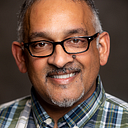Financial Literacy Has Always Been Untruthful in Math Education
Governments should NEVER be trusted to oversee the writing of a math curriculum for one simple fact: they also run lotteries. Nobody is going to dispute that budgeting and learning how to save is important, but if you think that making math practical in that realm is some kind of elixir for getting students interested in mathematics, then you might be severely overestimating what kids are interested in.
Mortgages. Really? You just need a 5 minute lesson called Banks Will Rip You Off Royally. All those ridiculous formulas that students learn in high school about amortization is moronic. Do you think when students walk into a bank — all two of them because nobody can afford a house anymore — they will be walking in with those formulas to negotiate a better mortgage??
It’s all smoke and mirrors. It’s also egregiously classist to install that kind of mathematics in high school as mandatory. It’s like forcing kids to learn how the rich live and play. And teaching young kids about budgeting and the grocery store is down to celery costs more than meat somedays — let’s not investigate that shall we!
But, that’s not my main gripe. My main issue is that the government has the audacity — and irony — to NOT be concerned about the unvarnished truth about financial literacy. Namely, anything to do with gambling — lotteries, insurance, and extended warranties. Financial literacy is about protecting institutions first. If you don’t believe that, check out this brilliant piece of MATHEMATICAL ILLITERACY proudly posted by the Ontario Government.
Yup. It is true. If you buy more tickets, you have more chances to win. Well, duh. If I buy 100 tickets, I have more chances to win. Sure do. You’ve probably spent a nice steak dinner for two to move the probability of winning the jackpot in the sixth decimal place. But, far worse, because lotteries have a brutal negative expectation(you wouldn’t learn that in school), you are just being robbed even more.
When I was asked to join the Group Play cult many years ago at a high school I taught at, I politely declined. However, I also offered some mathematical advice that fell on deaf ears. I suggested that we all chip in the $2 like usual, but ONLY buy ONE ticket. Buying the extra 40 more is a waste of time, and you are just burning your money. It would be faster just to throw it down the sewer outside. I said that with the extra money that we collected, we start a lunch fund for kids(I was teaching at a low-income school at that time). We still get to play as a group for social reasons. We demonstrate true mathematical literacy. We help our community.
Naturally, the idea was rejected. I should have quit teaching that day.
Here is a video I made about how mathematical expectation is used in a duplicitous manner to get you to buy extended warranties.
The current version of financial literacy is one boring, long-drawn infomercial for banks to make money. All the while with the government performing the critical hegemonic task of not educating students on probability, statistics, mathematical expectation, and utility, as applied to everyday decision-making. That’s the unsavory story and truth. Mathematics should be used to criticize institutions, not embolden them with their self-serving need for power and money.
We love to slap on warning labels for cigarette smoking, and all the dangers to our health. Where is the label for warning that lotteries and associated activities are bad for our financial health? Here is the elevator pitch lesson offered by the government. They even turn their illiterate warning into a catchy marketing jingle.
That’s your financial literacy, folks. And, it’s not coming to the theatre near you anytime soon. Anyone telling the public that students need more financial literacy is usually wearing a tie and works in the financial sector — working against you.
They also probably buy more than one lottery ticket…
